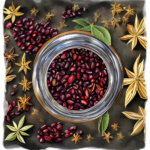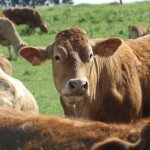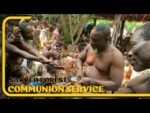- Sacred color: white, transparent/aurora transparent, white and a little red, or green and maroon depending on tradition
- Domain: Emissary of Olodumare/Almighty Unfathomable, Father of physical life, Shaper of human form in the womb, Patron of the physically different or disabled, intellect, fatherhood, warrior philosophy, kingship, ethics, logic, inner peace, balance, transformation
- Tools: the will, the hand, cowrie shells, white horse hair whip, clear and white translucent quartz
Obatala is the Emissary of Olodumare. He is the closest that the human mind can fathom to an all encompassing God figure. He represents the highest will of Nature, and lives deep in the will of mankind. He places that spark of divinity in all living beings.
He is often called King of the White cloth because traditionally, he is visualized as wearing white or undyed fabrics. In his Earth incarnations and embodiments, his clothing may be beige or stained from travel and the trials of being a helpful person.
He is the Patron of the physically different, unique, and “disabled”. They are very sacred to him. To harm one of his special ones without just cause is to incur his wrath and lose his associated blessings. This is also true of someone who intentionally harms another because they are different from themselves, even if they are not disabled or very different from their peers.
Though Obatala is usually represented as male, he is actually androgynous, and there are many stories in which he merges with Yemaya/Olokun and becomes Yembo. So androgynes and two-spirits are definitely among his special ones.
Many of the great prophets’ head Orisha was Obatala. It is a great gift and a great burden. Some of the worst villains known to mankind also had or have him as their head. They tend to be extremely charismatic, and can do exceptional good or exceptional evil, depending on how well aligned they are with the benevolent aspects of Obatala.
One of the best known speculated children of Obatala was Jesus Christ. This is one reason many practitioners of Vodun and other diaspora systems see no conflict between worshiping Jesus along with African spirituality. Jesus was a great example of a well aligned child of Obatala for his time.
There are many stories about the interaction between Eshu and Obatala. Many times, Eshu tricks Obatala, reminding him that too much piety or rigidity of thought creates a blind spot or leads to trouble. In human interactions, children of Obatala and children of Eshu also tend to have these types of encounters. They may be best friends or worst enemies, but they always learn important things from one another.
Offerings to Obatala
Food offerings to Obatala should be simple, plain, but hearty and tasty food such as one would serve a visitor whose allergies and preferences you weren’t quite sure of. Porridge, baked or boiled chicken breasts seasoned with very little salt, white raisins, rice, and bread are some examples. He also likes pears and soursop (also called custard apples) very much. If oil is used, it should be olive oil, ghee, or another pure, unhydrogenated, naturally pressed or rendered oil. He also enjoys temple incenses, myrrh, frankincense, sandalwood, aloeswood, and the like.
Some people in particular streams of Obatala awareness may prefer to keep their offerings vegan or vegetarian. Follow your conscience in this. He is the same Obatala who shaped tigers to eat meat, so he doesn’t have a problem with humans doing it if needed. However, every action has consequences, and if you do not like the way meat or animal products affect you, or you find that you get better alignment, despite the darker realities of Nature, by keeping vegan, then do that. Just make sure your vegan offerings don’t contribute to any harm to humans either.
Obatala Incense
- the contents of one vanilla bean for Eshu
- a handful of frankincense
- a handful of myrrh, copal, or benzoin
- about a fingertip sized chunk of alum
- a good tablespoon of white sandalwood
- a good tablespoon of aloeswood
- a dash of sea salt
- a few drops of rose absolute or attar of roses
Crush in a mortar and pestle to your desired level of chunkiness. Burn in the highest safe place possible that you can get to.
Obatala Oil
Plain cold pressed olive oil or coconut oil is good, but you can make a very nice good smelling special Obatala oil.
- 3 coffee beans for Eshu
- 1 liter of olive oil
- a handful of sandalwood chips or powder
- a handful of aloeswood chips
- a fingertip sized chunk of jasmine wax or a handful of dried jasmine flowers
- a handful of tea roses
- a good tablespoon of rosemary
- a half teaspoon celery seed
Put in the coffee beans, and then the rest of the dry ingredients. Pour the oil over all, and give it a good shake. Keep in a cool, dark, but high place for at least 3 months.
No related posts.













